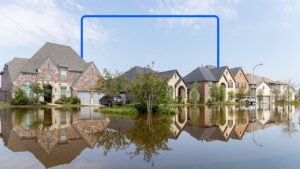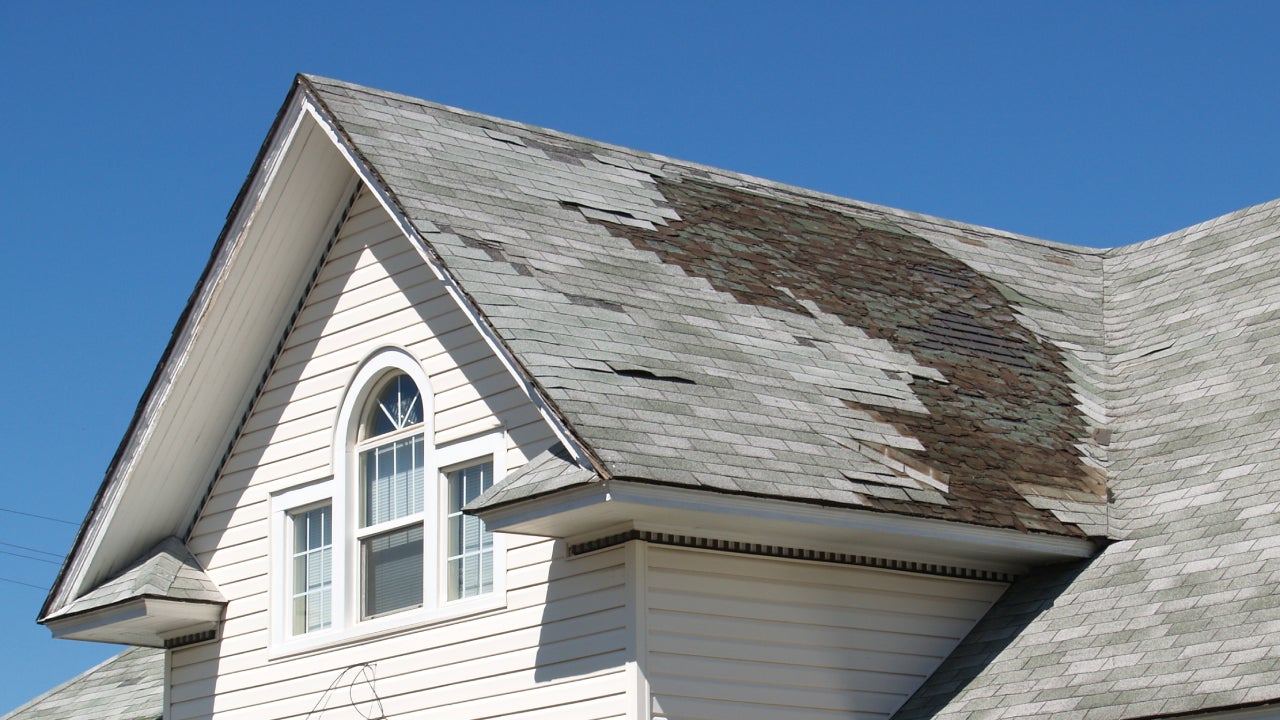How to get homeowners insurance after nonrenewal

Key takeaways
- Homeowners insurance companies must provide written notice 30 to 60 days before a nonrenewal can take effect.
- You can take action to address a nonrenewal by submitting evidence to your insurance company for reconsideration.
- Nonrenewal of your home insurance can happen for a variety of reasons, and is different from policy cancellation.
With extreme weather on the rise and an increasing number of insurers pulling out of high-risk markets, it’s less rare to get a home insurance nonrenewal notice. In a nonrenewal letter, your insurance provider will tell you why it’s dropping your policy. It could be that your carrier won’t write policies in your state anymore. Or, maybe it’s something specific to you as homeowner, like a missed payment. If you can’t address the reason for the nonrenewal, you’ll need to shop around for a new policy. Bankrate’s insurance editorial team can help you navigate how to get home insurance after a nonrenewal.
Why was my homeowners insurance not renewed?
When homeowners insurance companies choose to nonrenew a policy, they must submit a written notice to the homeowner citing the reason why at least 30 to 60 days before the nonrenewal goes into effect. Some of the most common reasons why a homeowners insurance company could elect to nonrenew a policy are listed below:
Your area is too high-risk
Insurance companies are private, for-profit businesses. They’re not like gas or electric companies, which are state-obligated to service certain areas. If it’s no longer profitable for an insurer to write policies in a certain city or state, an insurance company can choose to stop writing policies for properties in those high-risk areas.
This usually happens in states with frequent, widespread losses. Multiple carriers have paused new policies in California due to wildfire concerns and other issues, and Florida has been grappling with a home insurance crisis for years (although it could be turning a corner). When insurance companies are consistently paying out large claims, like after wildfires or hurricanes, it could push their bottom lines into the red.
Your risk profile is too high
Your unique risk profile could be the reason you got a home insurance nonrenewal letter. If your home insurance company views you as more likely to file claims, it could see you as a high-risk homeowner and therefore drop your coverage. Some of these red flags for insurers include:
- Late premium payments
- Filing too many claims
- Negative change to credit history (in most states)
- Adopting a high-risk dog breed
- Installing a swimming pool, tree house, playground equipment or other attractive nuisance
- Poor roof condition
Lately, home insurance companies have been using aerial imagery to evaluate properties for damage or other risks not disclosed by a homeowner. If, for example, you installed a pool but didn’t tell your home insurance company, they may have used aerial imagery to find out.
Your home is vacant
Many homeowners do not realize that standard home insurance policies often have a vacancy clause. If the home is completely empty and unoccupied for 30 consecutive days or longer (depending on the state), an insurance company may choose to cancel or not renew the home’s insurance policy. If you treat your property as a vacation home, you should inform your insurance agent so that they can insure the home with the appropriate policy.
Your home is not well-maintained
On occasion, an insurance company may send a third-party property inspector to your home to do an exterior inspection. Or, in lieu of sending a home inspector, your home insurance company may use drones for aerial footage of your home. During these surveys, the inspector checks your home to ensure that it is well-maintained and that there are no safety hazards, like overgrown trees, debris on the property or a deteriorated exterior. If they find your home is not well maintained, potentially increasing the risk of a claim, the carrier may choose to nonrenew your policy.
A nonrenewal can cause a lapse in homeowners insurance if you don’t get a new policy in place before the expiration date. If your coverage lapses, the mortgage company may put force-placed insurance on your home. Force-placed insurance generally doesn’t offer as much financial protection for homeowners and is often more expensive than a standard policy. The cost would be added to your mortgage payment. To get rid of force-placed insurance — or prevent it altogether — be sure to purchase a new policy that goes into effect before your coverage lapses, even if you’re still disputing your nonrenewal. When looking for a new policy, be sure to make sure your new coverage satisfies your lender’s insurance requirements.
How to get coverage after nonrenewal
Each state has different regulations for how a carrier can issue an insurance nonrenewal notice, but the average time of notice before the nonrenewal commences is 45 days. From there, depending on the reason for nonrenewal, you have a few options, including:
- Address the concern. If your home has not been maintained, it may help to take action and resolve the issues as soon as possible. Submitting evidence to your insurance company that you resolved the cause of the nonrenewal may prompt it to reconsider the nonrenewal notice. Taking care of this as early as possible may give you time to shop around for a new homeowners insurance policy just in case the policy isn’t approved for renewal after reconsideration.
- Catch up on missed payments: If your policy was denied because your insurance company claims you missed a payment, contact a licensed agent to see if it was a paperwork error. This could have happened if you recently changed home insurance companies.
- Question or dispute the nonrenewal. If you feel that the nonrenewal reason is unjust, you may have the option to question or dispute it by calling the insurance provider’s consumer affairs division or contacting your state’s insurance department.
- Shop around for a new homeowners insurance policy. Letting your current policy lapse could leave you without coverage and increase your insurance rates down the road. And, if you have a mortgage, one of the loan conditions is likely to keep continuous home insurance. If you do not ensure that the home is covered, your lender could purchase force-placed insurance in your name, often at a higher cost.
- Consider an insurance broker: An insurance broker can help take some of the stress out of finding a new policy, especially if your state’s home insurance market is tight. You may want to contact an insurance broker from a different part of your state, as they may be more familiar with smaller, more regional carriers that you may be unaware of.
- Check the date of your new policy. When buying new home insurance, you’ll want to make sure that the effective date is on or a day before the last day of your current coverage to avoid an accidental lapse in coverage. After you purchase the new policy and set the effective date, be sure to send a copy to your lender so that they are aware of the changes.
- Consider a high-risk home insurer: If your home has been deemed high risk, you might benefit from getting high-risk home insurance. Although these policy types can be more expensive than a standard home policy, they can provide the coverage you need to avoid a gap in insurance.
- Use your state’s FAIR plan: Some states offer a FAIR Plan, or Fair Access to Insurance Requirements Plan. This government insurance program is for homes that don’t qualify for coverage in the private insurance market.
Frequently asked questions
Why we ask for feedback Your feedback helps us improve our content and services. It takes less than a minute to complete.
Your responses are anonymous and will only be used for improving our website.
You may also like

Does homeowners insurance cover roof leaks?

How to get flood insurance coverage and who needs it

What is homeowners insurance and how does it work?

What is replacement cost coverage in home insurance?


